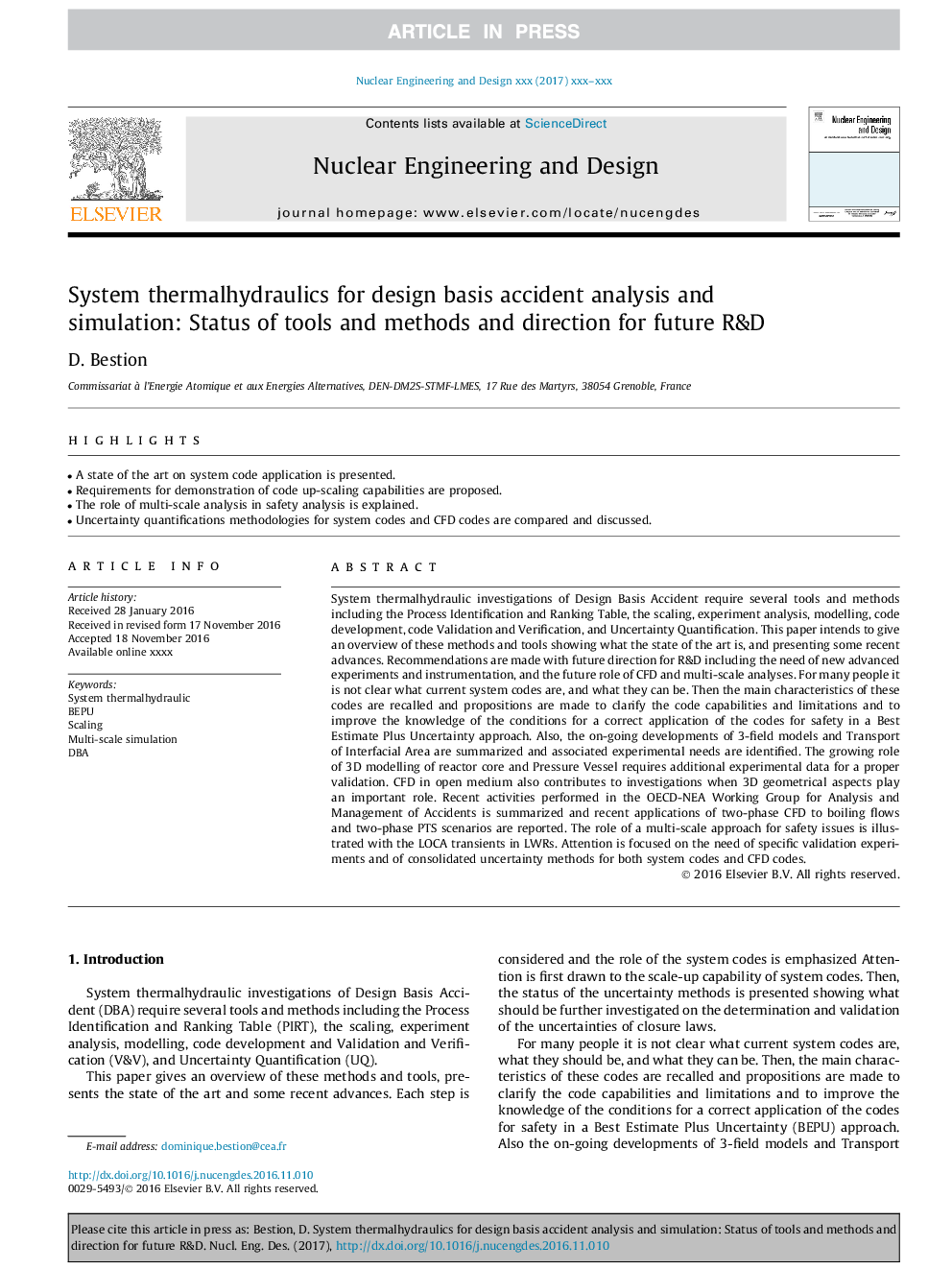| کد مقاله | کد نشریه | سال انتشار | مقاله انگلیسی | نسخه تمام متن |
|---|---|---|---|---|
| 4925746 | 1431409 | 2017 | 18 صفحه PDF | دانلود رایگان |
عنوان انگلیسی مقاله ISI
System thermalhydraulics for design basis accident analysis and simulation: Status of tools and methods and direction for future R&D
ترجمه فارسی عنوان
سیستم حرارتی هیدرولیک برای تجزیه و تحلیل و شبیه سازی تصادف مبتنی بر طراحی: وضعیت ابزار و روش ها و جهت تحقیق و توسعه آینده
دانلود مقاله + سفارش ترجمه
دانلود مقاله ISI انگلیسی
رایگان برای ایرانیان
موضوعات مرتبط
مهندسی و علوم پایه
مهندسی انرژی
مهندسی انرژی و فناوری های برق
چکیده انگلیسی
System thermalhydraulic investigations of Design Basis Accident require several tools and methods including the Process Identification and Ranking Table, the scaling, experiment analysis, modelling, code development, code Validation and Verification, and Uncertainty Quantification. This paper intends to give an overview of these methods and tools showing what the state of the art is, and presenting some recent advances. Recommendations are made with future direction for R&D including the need of new advanced experiments and instrumentation, and the future role of CFD and multi-scale analyses. For many people it is not clear what current system codes are, and what they can be. Then the main characteristics of these codes are recalled and propositions are made to clarify the code capabilities and limitations and to improve the knowledge of the conditions for a correct application of the codes for safety in a Best Estimate Plus Uncertainty approach. Also, the on-going developments of 3-field models and Transport of Interfacial Area are summarized and associated experimental needs are identified. The growing role of 3D modelling of reactor core and Pressure Vessel requires additional experimental data for a proper validation. CFD in open medium also contributes to investigations when 3D geometrical aspects play an important role. Recent activities performed in the OECD-NEA Working Group for Analysis and Management of Accidents is summarized and recent applications of two-phase CFD to boiling flows and two-phase PTS scenarios are reported. The role of a multi-scale approach for safety issues is illustrated with the LOCA transients in LWRs. Attention is focused on the need of specific validation experiments and of consolidated uncertainty methods for both system codes and CFD codes.
ناشر
Database: Elsevier - ScienceDirect (ساینس دایرکت)
Journal: Nuclear Engineering and Design - Volume 312, February 2017, Pages 12-29
Journal: Nuclear Engineering and Design - Volume 312, February 2017, Pages 12-29
نویسندگان
D. Bestion,
